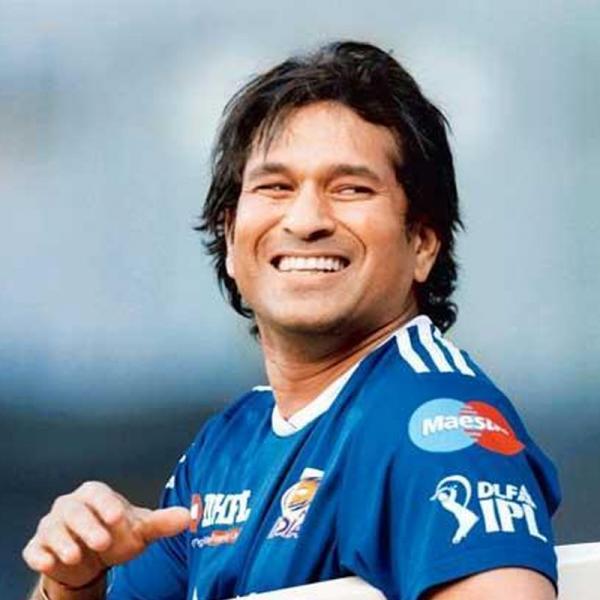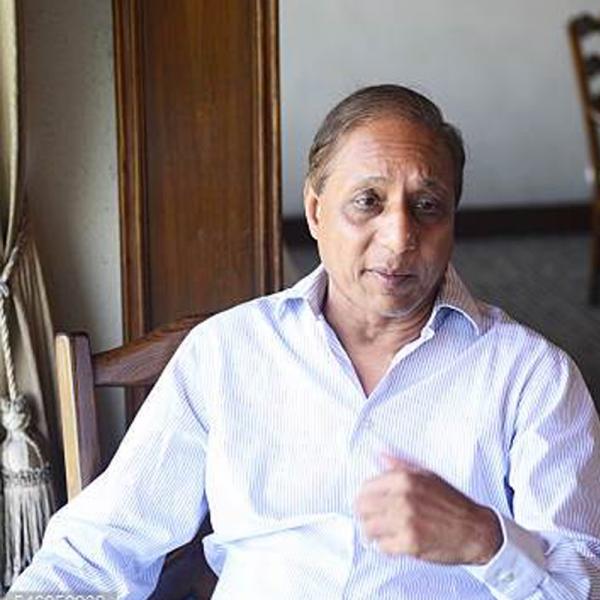No biz, it's English news & current affairs channel for Times
MUMBAI: After keeping everyone on tenterhooks, the picture is now clearer.
By Papri Das
There was a time when a good quality pen would symbolise knowledge, affluence and empowerment; when youngsters would be a ball of excitement on receiving their first fountain pen; when revolutionary ideas would be penned down to change history of nations. Now it would be safe to say that the ?once mightier than the sword? pen couldn?t survive the onslaught of the digital era and the keys on your device?s touchpad.
Or is it?
A recent report from The Economic Times read that more and more foreign luxury pen brands are finding India to be a booming market place for their products. While the use of regular pens may have gone down drastically, high-end luxury pens still continue to enjoy high esteem amongst the affluent and the well-established lot. Pens have evolved from being a practical necessity to a connoisseur?s luxury. Exec Lifestyle spoke to several eminent personalities from the media to explore their romance with pens.

Although a very clich? practice, but any discussion about writing instruments almost always starts with a writer, and so Exec Lifestyle caught up with television screenplay writer and author Gajra Kottary. ?Writing with pen has more of an emotional value to me these days. I used pen and paper till I was writing the script for Astitva, one of the daily television shows I have worked on,? says the charming author who has also penned the television show Ghar Ek Sapnaa. Admitting the difficulties she faced in switching to the digital platforms, Kottary says that things have changed drastically for her. ?I can't write the same amount of content with a pen, which I do digitally. Quite the irony, isn't it??
Kottary?s collection of luxury pens is in double digits now. ?I have gathered so many of them that these days I have to request people not to gift me pens anymore cause it is a shame to see them simply showcased in a shelf,? she says.
Amongst the collection, one that is close to her heart is classy ST Dupont pen. ?I have over ten luxury pens ranging between Montblancs, Cartier and more, but my favourite is a Shantung from ST Dupont. It has an amazing design and a beautiful blue color. What adds to my emotional connect to it is the fact that my husband gifted it to me on one of our anniversaries,? she reminisces.

Kottary isn?t the only own who invests special sentiments in a pen. Ogilvy and Mather executive creative director Sumanto Chattapadhyay shares how he cherished the Montblanc his parents gifted him. ?When I was in school, my parents gifted me a Montblanc pen. In those days, it was a big deal to be able to afford a branded pen like that so it was a memorable instance in my life. I remember holding it close to my heart through my college, until one fateful day it got stolen. I was really upset by its loss,? says the creative genius, who also made an appearance in the recently released Piku.
Perhaps it is this loss, or his habit of misplacing pens in general, that keeps him from using luxury pens on a day-to-day basis. Instead he invests in the cheaper ones and buys them in bulk, while preserving the special edition ones. ?Someone recently gifted me a calligraphy pen or a quill, which needs to be dipped in an ink pot to use,? gushes Chattopadhyay. ?But when it comes to writing on a day to day basis, I honestly prefer the use and throw dot pens.?

This formula resonates well with most executives. BBH India CEO Subhash Kamath admits that he too shies away from using his luxury pens and instead goes in the ?use and throw? direction. ?Yes I have quite a few Montblancs, Waterman and Sheaffer (courtesy gifts) but I hardly ever use them. I prefer using my regular Camlin or Add Gel pens for everyday use,? he says.
While many consider possessing a classy luxury pen as a sign of status, for many is gives a sense of empowerment. A fine example is Sonic and Nickelodeon India executive vice president Nina Jaipuria. ?A pen gives me a strange sense of empowerment. Compared to a digital signature, when it comes to signing to officialise a document, pens are the first and last choice. It gives you a certain sense of power. A single sign can make a huge difference in your or another's life,? says the lady.

Like any other established creative professional Jaipuria too had her fair share of luxury pens gifted to her on various occasions. However, the one that stands out is the very personalised gift she received a couple of years back. ?I am particularly fond of this pen, which was gifted to me by a close associate of mine a couple of years back. It is carved out of wood completely with a non-refillable gel ink in it. What makes it more special is that not just the case but the pen too bears my name,? she says adding further that she takes care not to use it too often. ?I make sure to use it judiciary, fearing that the pen will run out of the ink, at the same time not to keep it in the box too long as the ink may end up drying.?
These were a few anecdotes from India?s top media executives on their love for good luxury pens. What is your pen story? Do share with us on the comment box below.


NEW DELHI: This weekend, TIMES NOW ? India?s No. 1 general English news channel presents its viewers with a special episode of ?Frankly Speaking?. In a candid interview with TIMES NOW‘s Editor-in-Chief Arnab Goswami, India?s God of cricket, Sachin Tendulkar, discusses his retirement, memorable moments of his career and shares exclusive insights into his personal life.
In the interview Sachin reacts for the first time to statements made by Sunil Gavaskar that state how he has been bowled twice consecutively and how that is a bad sign for the batsman. Sachin responded to the comment saying, ?Sunil Gavaskar has also said positive things about me. When there have been a lot of positive feedback as well, why keep harping only on the negative comments? Ultimately, if I am out, I am out. I can‘t get stuck on one article about me and try to create something that the person is hoping to create out of it. I need to stay focused on the game and constantly keep finding ways to improve myself. There is no stage in which one ceases to learn about cricket. One remains a student of this game for ever.
On being asked about his plans for retirement, Sachin shared, ?I am 39 and I don‘t think I have plenty of cricket left in me. But it depends on my frame of mind and my physical ability to deliver. At this stage, I don‘t think I will be playing the next World Cup.?
Commenting on the match versus Pakistan in 2004 where he hit 194 not out when the match was declared, Sachin shared, ?I was asked a question in a press conference just after the match if I was surprised by the declaration. I said yes. Then I was asked if I was disappointed. I said, "Yes, I‘d be lying if I said I wasn‘t disappointed." But that is all that I had said. After the declaration, I got to the dressing room, quietly put my bat aside and sat down. I had my pads on. After a couple of minutes, I washed my face, went up to John Wright, our coach then and said, "I will take some time to get back on the field because my back is a little sore. I will go after a while." That is all that happened.?
Discussing the test match versus Pakistan in 1999 where India lost by 12 runs, Sachin said, ?It was disappointing. Yes I cried. I felt bad because we were so close to winning the match but couldn‘t cross the final hurdle. I have to admit that I was not able to receive the Man of the Match award then because I was in tears.?
Responding to accusations about playing the game only to continue commercial endorsements associated with him, Sachin said, ?My manager tells me that there were a couple of articles about this issue. As a matter of fact, there was an article in The Economic Times? I‘d call this irresponsible journalism by a journalist who has vested interests.?

Mumbai: The Economic Times brings back The Power of Ideas, India?s largest entrepreneurship development programme. It aims to encourage individuals with a business idea to come forward and connects them with relevant mentors and investors. The programme was first launched in 2009 when it received over 12,000 business ideas followed by over 16,000 the next year. This year, armed with a bigger corpus of funds, the initiative seeks to transform more business ideas into real businesses.
According to Ravi Dhariwal, Chief Executive Officer - Bennett, Coleman & Co. Ltd, ?We at The Economic Times believe that the future of the Indian economy lies in the hands of young entrepreneurs. It is the energy and drive of these young people with an idea that will give India its next big leap. I am happy to say that The Power of Ideas initiative has provided critical impetus to many such ideas.?
The programme is conducted by The Economic Times in partnership with the Department of Science & Technology (DST), Government of India. DST brings to the programme its immense expertise and relationships in the entrepreneurial space as well as a corpus of Rs. 6.2 crore of guaranteed funds. The funds are open to all those with genuine innovation on their mind, regardless of whether they have just an idea or a fully functional start-up.
Working alongside ET and DST is IIM Ahmedabad?s Centre for Innovation Incubation and Entrepreneurship (CIIE).CIIE is a leader in the field of mentoring, guiding and making business ideas investor-ready. The greatest value CIIE will add to The Power of Ideas will be by way of their wide network of mentors and investors who will evaluate every single business idea received as part of the programme. The most deserving ideas will be given personalized mentoring. In the last phase, entrepreneurs who make it to the final cut-off will be taken through a nine-day period of intensive mentoring by CIIE, as a residential programme at IIM Ahmedabad.This unique public-private-academia partnership remains in place in 2012 to drive the programme to new heights.

 switch
switch
 switch
switch